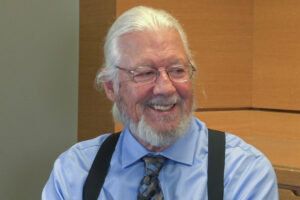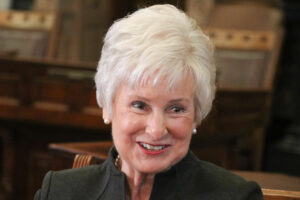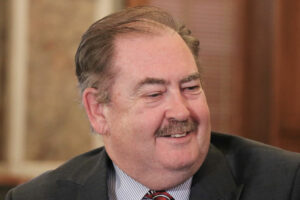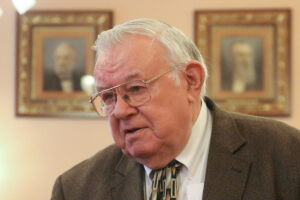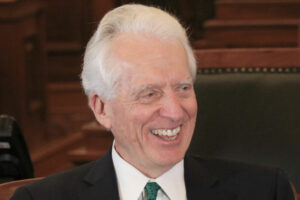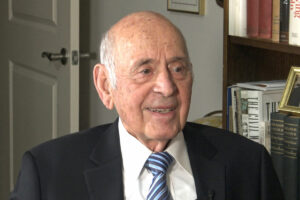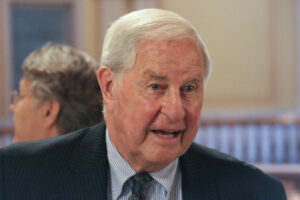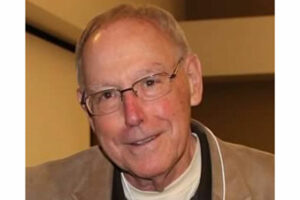Interview of Edward (Ed) Reilly, July 2, 2019
Interviewed by Dale Goter
In his 2019 oral history interview former State Senator Ed Reilly recalls controversial issues that went through the Senate Federal and State Affairs Committee during his tenure as chair (1971-1992). Those issues include the death penalty, liquor by the drink, lottery, pari-mutuel wagering, and casino gambling, some of which required adoption of Constitutional amendments. Reilly attributes the acceptance of those cultural changes in part to the need to raise additional state revenue. Reilly recalls professional relationships with the Statehouse press corps and the influence of grass-roots interests. He observed the increase in the number of women in the Legislature and Show Morecomments about their contributions. Show Less


